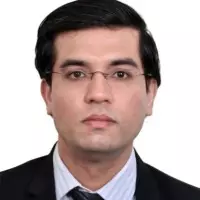Right to Privacy as Source of Additional Procedural Safeguards for Taxpayers' Vis-À-Vis Search and Seizure Operations Under GST in India

RIGHT TO PRIVACY AS SOURCE OF ADDITIONAL PROCEDURAL SAFEGUARDS FOR TAXPAYERS' VIS-À-VIS SEARCH AND SEIZURE OPERATIONS UNDER GST IN INDIA The article proposes the right to privacy as an additional prism through which search operations in India ought to be evaluated for legal/constitutional validity Powers of search and seizure have been a part of fiscal and tax laws in India from the...
RIGHT TO PRIVACY AS SOURCE OF ADDITIONAL PROCEDURAL SAFEGUARDS FOR TAXPAYERS' VIS-À-VIS SEARCH AND SEIZURE OPERATIONS UNDER GST IN INDIA
The article proposes the right to privacy as an additional prism through which search operations in India ought to be evaluated for legal/constitutional validity
Powers of search and seizure have been a part of fiscal and tax laws in India from the very beginning. In the recent past, there have been frequent media reports of aggressive raids/search and seizure operations carried out by the GST authorities across the country. With the growing number of operations, there have also been many reports of abuse of power by GST authorities - officials are often alleged to harass and intimidate senior executives of taxpayers. The Hon'ble Gujarat High Court in the case of Bhumi Associate v. Union of India & others (SCA 3196 / 2021) came down strongly against heavy-handed practices of tax officers during search and seizure.
From a legal perspective, such excesses are often contested on grounds of arbitrariness, disproportionateness etc., drawing from Articles 14 and 19(1)(g) of the Indian Constitution. Vide this article, right to privacy is being proposed as an additional prism through which search operations in India ought to be evaluated for legal/constitutional. validity.
1. Right to privacy apropos search and seizure under tax laws – key judgments and their impact
The interface between right to privacy and search and seizure under tax laws in India has mostly been in the context of ability to exclude evidence collected illegally (for example, in a manner that violates right to privacy) from proceedings against the taxpayer. Unlike the "fruit of the poisonous tree" doctrine in USA and "The Unfair Operation Rule" in UK which absolutely exclude illegally collected evidence, there is no such absolute exclusion in India under the Indian Evidence Act – courts effectively have the discretion to admit such evidence if found 'relevant'.
A challenge to this legal position failed in 1974 - the Supreme Court in Pooran Mal v. The Director of Inspection (Investigation), New Delhi & Ors [1974 (1) SCC 345] held that "unless there is an express or necessary implied prohibition in the Constitution or other law, evidence obtained as a result of illegal search or seizure is not liable to be shut out." It is critical to note here that the Supreme Court in Pooran Mal relied on the fact that there is no recognized right to privacy under the Indian Constitution, in order to reach its conclusion2.
This crucial pillar in Pooran Mal's reasoning has crumbled now – in 2017, a 9-Judges bench of the Indian Supreme Court in Justice K.S. Puttaswamy (Retd.) and Another v. Union of India and Others, [(2017) 10 SCC 1] has acknowledged the existence of right to privacy as an extension of the fundamental rights enshrined under Articles 19 and 21 and as an element of human dignity. It was further clarified that an invasion on the right to privacy will have to meet the threefold test - (a) legality (which postulates the goal); (b) necessity; and (c) proportionality (to ensure the rational nexus between the objective and the means adopted to achieve the same)1.
This journey from Pooran Mal to Puttaswamy and the related implications have been examined at length and with great erudition in a series of articles published by Taxsutra by Mr Tarun Gulati (Senior Advocate)3. For the purposes of this article, suffice to say that the judgment in Puttaswamy leads to a very strong legal argument that the judgment in Pooran Mal stands impliedly overruled and more importantly, applying the test of 'legality' as laid down in Puttaswamy, no longer can one ignore the "fruit of the poisonous tree" doctrine in India.
2. Right to privacy apropos search and seizure under tax laws – specific context of electronic devices
The touchstone of the right to privacy will be even more relevant in the context of search, seizure and retrieval of evidence from electronic devices like mobile phones and laptops. A recent attempt to challenge request for passwords to such electronic devices on the basis of right against self-incrimination and right to privacy failed before the Karnataka High Court in Virendra Khanna vs. State of Karnataka (in WP No. 11759 of 2020, judgment dated 12.3.2021). Here, it was held that providing password to a mobile/electronic device (after a search warrant) is neither tantamount to 'self-incrimination' nor can be considered a violation of the right to privacy and thus is not constitutionally invalid.
Unlike "fruit of the poisonous tree" doctrine in the USA absolutely excluding illegally collected evidence, there is no such absolute exclusion in India – the right to privacy prism forces us to relook at this position
However, this may not be the last word in this context –in Riley v. California, [573 U.S. 373 (2014)] the Supreme Court of USA observed: "Modern cell phones are not just another technological convenience. With all they contain and all they may reveal, they hold for many Americans "the privacies of life" … the fact that technology now allows an individual to carry such information in his hand does not make the information any less worthy of the protection for which the Founders fought …". This and other similar judgments from various other jurisdictions will need to be examined before the law is settled in India in this regard.
3. Concluding thoughts
Recently, the Hon'ble Delhi High Court in the case of Jatinder Pal Singh v. Central Bureau of Investigation & Ors. (CRL. M.C. 3118 of 2012), disregarded illegally intercepted audio recordings and set aside the charges framed on the basis of such illegally intercepted audio recordings. While this case didn't specifically dwell into the "fruit of the poisonous tree" doctrine, clearly, the stage is set to take the jurisprudence forward.
This can happen in two ways:
(i) Prescription of detailed procedural safeguards to balance right to privacy and "interests of revenue". Such safeguards may emerge from the judiciary (like how the Supreme Court laid down detailed guidelines apropos arrests in the famous D.K. Basu case) or, if one is being optimistic, in the form of circular/guidelines from the Government itself.
(ii) A clear legal provision in the Indian Evidence Act incorporating the "fruit of the poisonous tree" doctrine – so that, evidence gathered in violation of law including the above procedural safeguards get absolutely excluded from being considered as evidence.
Disclaimer – The views of the authors in this article are personal and do not constitute legal / professional advice of Khaitan & Co. For any further queries or follow-up, please contact us at editors@khaitanco.com.
2 Please refer paragraphs 41, 42, 46, 118, 119, 127, 259 and 260 of the decision.
3 The articles can be accessed at - Perspectives: Pooran Mal - Sorry, But It Is Time To Move On! | Taxsutra; Perspectives: The Puttaswamy Effect - Possible End to Wanton Searches? | Taxsutra and Perspectives: The Puttaswamy Effect - The Department Cannot Have its Cake and Eat it Too! | Taxsutra. Last accessed on 24 January 2022.




